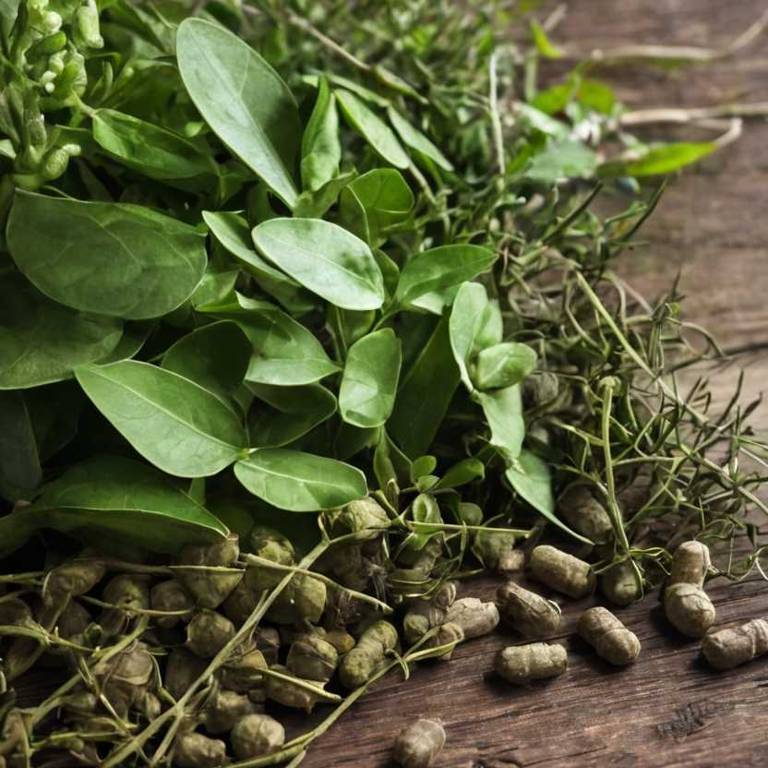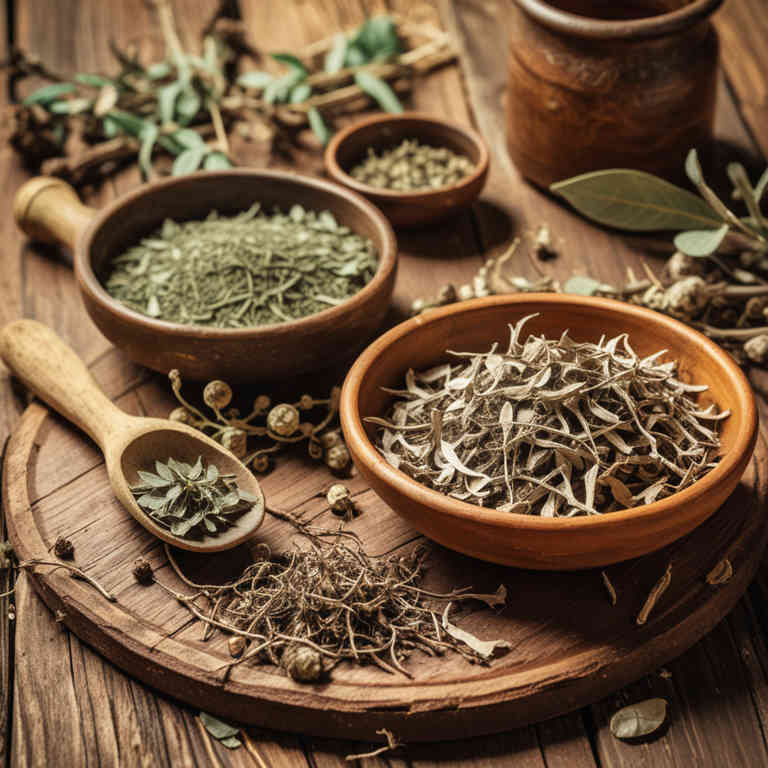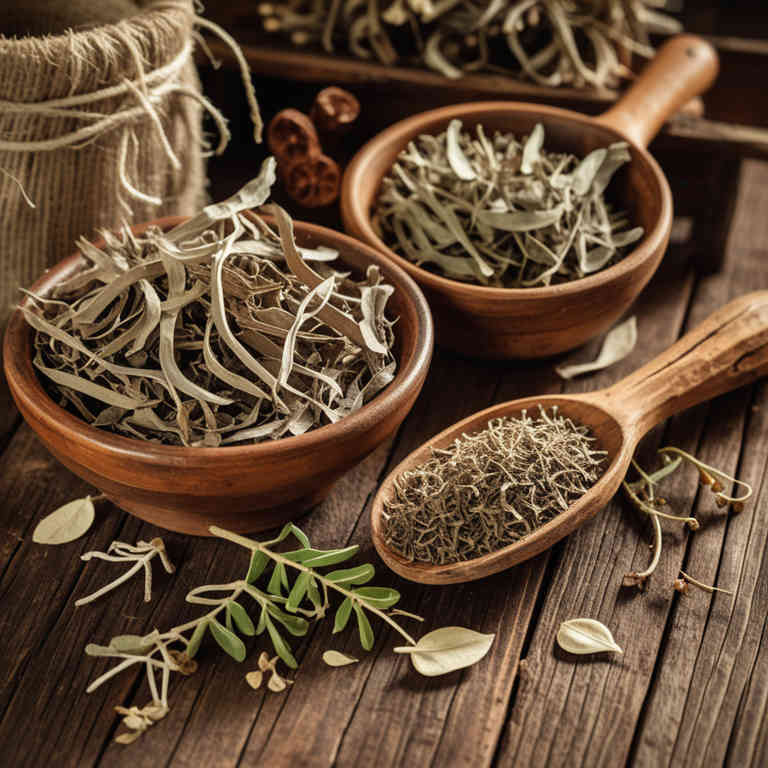10 Best Tinospora Cordifolia Preparations

The best medicinal preparations of Tinospora cordifolia are decoctions, teas, tinctures, capsules, and creams, each offering unique benefits for various health conditions.
A decoction involves boiling the herb to extract its active compounds, commonly used for digestive and immune support.
Teas made from the dried leaves are popular for their calming and detoxifying effects.
Tinctures provide a concentrated form, often used for quick absorption of its medicinal properties.
Capsules offer a convenient and standardized way to consume the herb, while creams are applied topically to treat skin conditions and inflammation.
These preparations highlight the versatility of Tinospora cordifolia in traditional and modern herbal medicine.
Below there's a list of the 10 best herbal preparations of tinospora cordifolia for medicinal purposes.
- 1. Decoctions
- 2. Teas
- 3. Tinctures
- 4. Capsules
- 5. Creams
- 6. Lozenges
- 7. Oinments
- 8. Oils
- 9. Syrups
- 10. Mucillages
1. Decoctions
Tinospora cordifolia decoctions is commonly used to treat a variety of health conditions, including inflammation, infections, and immune-related disorders.
These decoctions are often employed in traditional medicine to alleviate symptoms of arthritis, fever, and digestive issues. They are also used to support liver function and enhance overall vitality. The medicinal properties of Tinospora cordifolia decoctions are attributed to bioactive compounds such as alkaloids, glycosides, and steroids.
These constituents possess anti-inflammatory, antioxidant, and immunomodulatory effects, contributing to the plant's wide range of therapeutic applications.

2. Teas
Tinospora cordifolia teas is commonly used to support immune function, reduce inflammation, and treat various ailments such as fever, arthritis, and digestive issues.
This herbal preparation is widely utilized in traditional medicine systems like Ayurveda and Chinese medicine for its broad therapeutic effects. The most common medicinal uses include managing respiratory infections, alleviating joint pain, and promoting overall wellness. The bioactive constituents responsible for its medicinal properties include alkaloids, glycosides, steroids, and phenolic compounds, which exhibit anti-inflammatory, antioxidant, and immunomodulatory activities.
These compounds contribute to its ability to enhance immune response and combat oxidative stress in the body.

3. Tinctures
Tinospora cordifolia tinctures is commonly used to support immune function, reduce inflammation, and treat various ailments such as fever, cough, and digestive disorders.
These tinctures are widely utilized in traditional medicine systems like Ayurveda and are believed to have antimicrobial and antioxidant properties. The most common medicinal uses include managing chronic fatigue, arthritis, and respiratory infections. Bioactive constituents such as alkaloids, glycosides, and flavonoids are thought to contribute to its therapeutic effects.
These compounds help modulate the immune system and possess anti-inflammatory and antipyretic properties.

4. Capsules
Tinospora cordifolia capsules is commonly used to support immune function, reduce inflammation, and treat various ailments such as fever, respiratory infections, and skin conditions.
This herbal preparation is also used in traditional medicine to manage diabetes, liver disorders, and digestive issues. The most common medicinal uses include treating fever, cough, asthma, and inflammatory conditions like arthritis. The bioactive constituents responsible for its medicinal properties include alkaloids, glycosides, steroids, and phenolic compounds.
These compounds exhibit antioxidant, anti-inflammatory, and immunomodulatory effects, contributing to the plant's therapeutic value.

5. Creams
Tinospora cordifolia creams is commonly used to treat inflammatory skin conditions, such as eczema, psoriasis, and fungal infections.
These creams are also utilized for their antimicrobial and anti-inflammatory properties, helping to alleviate symptoms of skin irritation and infections. The medicinal uses of Tinospora cordifolia creams include reducing inflammation, promoting wound healing, and combating bacterial and fungal growth. The bioactive constituents responsible for these effects include alkaloids, glycosides, flavonoids, and steroids, which contribute to its therapeutic benefits.
These compounds work synergistically to enhance the immune response and reduce oxidative stress in the body.

6. Lozenges
Tinospora cordifolia lozenges is commonly used to treat respiratory and inflammatory conditions, such as coughs, sore throats, and bronchitis, due to their anti-inflammatory and immunomodulatory effects.
These lozenges are also used to support the immune system and alleviate symptoms of fever and fatigue. The most common medicinal uses include managing colds, flu, and other viral infections, as well as reducing inflammation in the respiratory tract. The bioactive constituents responsible for these effects include alkaloids like berberine, steroids such as tinosporaside, and glycosides like tinosporin.
These compounds contribute to the plant's antimicrobial, antioxidant, and immune-enhancing properties.

7. Oinments
Tinospora cordifolia oinments is commonly used to treat inflammatory conditions, skin disorders, and respiratory ailments.
This herbal preparation is widely employed in traditional medicine to alleviate symptoms of arthritis, eczema, and asthma. The most common medicinal uses include reducing inflammation, promoting wound healing, and supporting immune function. The bioactive constituents responsible for these effects include alkaloids, glycosides, and antioxidants such as tinosporine and tinosporide.
These compounds contribute to its anti-inflammatory, antimicrobial, and immunomodulatory properties.

8. Oils
Tinospora cordifolia oils is commonly used to treat inflammatory conditions, digestive disorders, and respiratory infections due to its potent therapeutic properties.
This herbal preparation is widely utilized in traditional medicine systems like Ayurveda and Chinese medicine for its ability to alleviate symptoms of arthritis, asthma, and gastrointestinal issues. The bioactive constituents responsible for its medicinal effects include alkaloids, glycosides, steroids, and flavonoids, which exhibit anti-inflammatory, antimicrobial, and immunomodulatory activities. These compounds work synergistically to reduce inflammation, enhance immune response, and support overall health.
As a result, Tinospora cordifolia oils remains a valuable natural remedy for a range of health conditions.

9. Syrups
Tinospora cordifolia syrups is commonly used to support immune function, treat respiratory infections, and alleviate symptoms of chronic inflammatory conditions.
This herbal preparation is often utilized for ailments such as colds, coughs, bronchitis, and even diabetes due to its purported antipyretic, immunomodulatory, and hypoglycemic properties. The most common medicinal uses include managing fever, enhancing immunity, and reducing inflammation in the respiratory and digestive systems. The bioactive constituents responsible for these effects include alkaloids like berberine, glycosides, and steroids, which contribute to its anti-inflammatory, antioxidant, and antimicrobial activities.
These compounds work synergistically to provide the plant's therapeutic benefits.

10. Mucillages
Tinospora cordifolia mucillages is commonly used to treat inflammatory conditions, digestive disorders, and immune-related ailments.
The mucillages, which are gel-like substances derived from the plant, are widely utilized in traditional medicine systems such as Ayurveda and Chinese medicine. They are often employed to alleviate symptoms of arthritis, skin infections, and gastrointestinal issues like ulcers and diarrhea. The bioactive constituents responsible for these effects include polysaccharides, alkaloids, and glycoproteins, which exhibit anti-inflammatory, immunomodulatory, and antimicrobial properties.
These compounds contribute to the plant's reputation as a versatile remedy for a range of health conditions.
